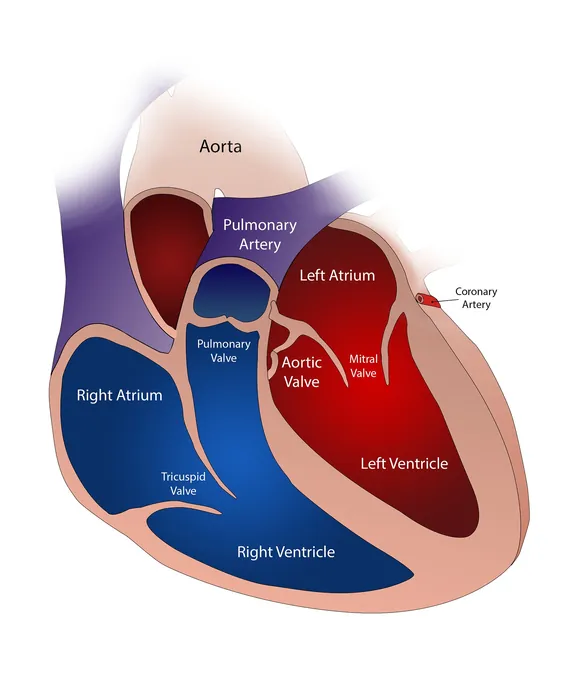
Revolutionary Study Reveals Edoxaban as Superior Anticoagulant for Heart Valve Surgery Patients!
2024-11-18
Author: Olivia
Introduction
In an exciting new study presented at the American Heart Association's Scientific Sessions 2024, researchers have found that edoxaban, an oral anticoagulant, may dramatically reduce the risk of stroke and blood clots in patients after heart valve replacement surgery, offering a compelling alternative to the traditional treatment with warfarin.
The Risks of Heart Valve Surgery
Heart valve replacement surgery is fraught with risks, particularly the potential for strokes and blood clots in the weeks that follow. Standard protocols currently recommend anticoagulant therapy to mitigate these risks, but outcomes can vary significantly based on medication choice. Patients with mechanical heart valves may need lifelong anticoagulation therapy, while those receiving bioprosthetic valves typically require it for three to six months post-surgery.
Why Edoxaban?
While warfarin has long been the go-to anticoagulant, it comes with several challenges, including frequent blood tests and dietary restrictions, making it cumbersome for patients. "Currently, we can only use vitamin K antagonists like warfarin for patients early after bioprosthetic valve surgery,” said Dr. Chisato Izumi, the lead author of the study from Japan's National Cerebral and Cardiovascular Center.
Edoxaban, approved by the FDA in 2015, disrupts the clotting process by targeting factor Xa, one of the critical components in blood coagulation. It is taken in a fixed dose, and unlike warfarin, it is not influenced by dietary changes or other medications—an undeniable advantage for patients during a vulnerable recovery phase.
The Promising Results of the ENBALV Trial
The trial, comprising around 400 adult patients who had undergone bioprosthetic heart valve surgery, compared the effectiveness and safety of edoxaban against warfarin within three months post-operation. Here are some key findings:
- **Stroke Prevention:** Patients on edoxaban experienced significantly fewer strokes or systemic embolisms (0.5% vs. 1.5% for warfarin).
- **Bleeding Risks:** Major bleeding occurred in 4.1% of those taking edoxaban compared to 1% in the warfarin group. Notably, there were no instances of fatal bleeding or intracranial hemorrhage in the edoxaban group, while one fatal cerebral hemorrhage was reported for those on warfarin.
- **Intracardiac thrombus:** No patients taking edoxaban faced blood clots within the heart, whereas 1% of the warfarin group did.
- **Gastrointestinal Bleeding:** The only draw back? A slightly higher incidence of gastrointestinal bleeding (2.1% in edoxaban group vs. 0% in warfarin group).
Dr. Izumi emphasized the implications: "Our findings suggest edoxaban could be an effective alternative to warfarin for preventing blood clots and stroke in patients post-bioprosthetic heart valve surgery."
The Future of Anticoagulant Therapy
The study highlights the pressing need for further research to determine which patients may be at the highest bleeding risk when using edoxaban and how to effectively manage that risk. Additionally, the effectiveness of other direct oral anticoagulants warrants exploration.
With its potential to transform post-surgical care, edoxaban represents a significant advancement in the treatment landscape for patients recovering from heart valve surgery, promising to ease their burdens and enhance quality of life. Will this be the game-changer the medical community has been waiting for? Only time will tell!
Stay tuned for updates as this area of research evolves, and make sure to consult with healthcare providers regarding the best treatment options available.









 Brasil (PT)
Brasil (PT)
 Canada (EN)
Canada (EN)
 Chile (ES)
Chile (ES)
 España (ES)
España (ES)
 France (FR)
France (FR)
 Hong Kong (EN)
Hong Kong (EN)
 Italia (IT)
Italia (IT)
 日本 (JA)
日本 (JA)
 Magyarország (HU)
Magyarország (HU)
 Norge (NO)
Norge (NO)
 Polska (PL)
Polska (PL)
 Schweiz (DE)
Schweiz (DE)
 Singapore (EN)
Singapore (EN)
 Sverige (SV)
Sverige (SV)
 Suomi (FI)
Suomi (FI)
 Türkiye (TR)
Türkiye (TR)